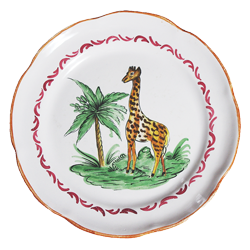
giraffe fever (1826)
From: Muhammad Ali of Egypt
To: Charles X of France
A Sudanese giraffe nicknamed “La Belle Africaine” was sent by the Ottoman Empire to discourage French support for Greek independence. The gift failed to achieve this goal, but the animal became a celebrity in her own right: within six months 600,000 people had visited her in the Jardin des Plantes in Paris, where they could also buy giraffe-shaped souvenir soaps and cookies.
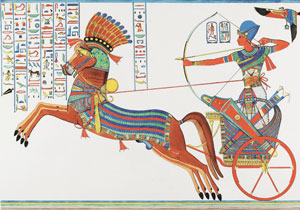
you call that a gift? (c. 1350 bc)
From: Ashur-uballit of Assyria
To: Akhenaten of Egypt
Hoping to assert Assyria’s equal standing with Egypt, Ashur-uballit sent Akhenaten a chariot, two horses, and a lapis lazuli bead. Egypt sent gold in return, but Ashur-uballit complained that it was not enough to cover the cost of sending his messengers.

panda diplomacy (2005)
From: China
To: Taiwan
In an attempt to smooth over past threats of military force, China offered two pandas; Taiwanese president Chen Shuibian called them a “Trojan horse” and a “ploy” in 2005. Three years later, once relations had thawed, Taiwan spent $10 million preparing a habitat at the Taipei Zoo for Tuan Tuan and Yuan Yuan. The pair produced a cub in 2013.
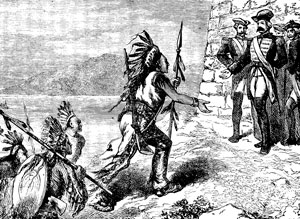
spoils of war (1756)
From: Nipissing Indians
To: Marquis de Montcalm
Thankful to receive reinforcements two years into the French and Indian War, the Nipissing presented Montcalm, a French army general, with a young English female prisoner of war. Montcalm reciprocated with the standard price for such a captive: forty silver ecus, plus an additional sum to demonstrate how honored he was by the lavish gesture.
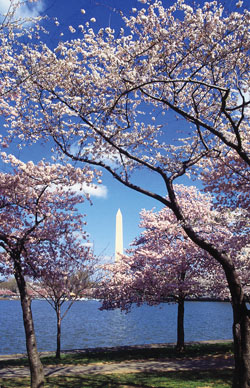
cherry picks (1912)
From: Japan
To: United States
As a symbol of friendship, Japan sent 3,000 cherry trees to beautify the Potomac tidal basin. The United States has commemorated the gift with a cherry blossom festival every year since 1935, with the exception of the six years following Japan’s attack on Pearl Harbor.
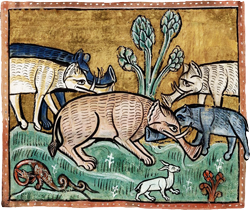
the caliph’s only elephant (802)
From: Harun al-Rashid, Abbasid caliph
To: Charlemagne, king of the Franks
To demonstrate the might of the Abbasids, Harun al-Rashid sent Charlemagne an elephant named Abul-Abbas. Rumors spread that Abul-Abbas had been the only elephant in Baghdad, leading the Franks to misinterpret the gift as a symbol of the caliph’s deference to Carolingian power.